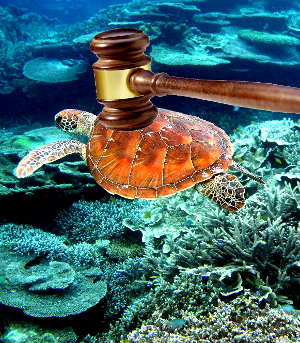Reef win swings on real application
 The United Nations' World Heritage Committee will not place the Great Barrier Reef on its “in danger” list.
The United Nations' World Heritage Committee will not place the Great Barrier Reef on its “in danger” list.
Furious lobbying and hundreds of millions of dollars from the Federal and Queensland Governments to protect the site appear to have convinced the 21 nation body that the Reef is going well.
Environment Minister Greg Hunt is patting himself on the back, but the UN's heritage experts have vowed to keep a close eye to ensure the governments deliver on their commitments.
They will be looking to ensure concerns related to water quality, coastal developments and, the approval for the dumping of 3 million cubic metres of dredge spoil in the World Heritage Area, are acted upon.
Mr Hunt says UNESCO considers Australia's handling of the Reef as “a role model for the world”.
“We've been asked to help other countries ... Australia is now the standard for the globe,” he told reporters.
Queensland Deputy Premier Jackie Trad said keeping the Reef off the ‘in danger’ list was a result of the partnership between the federal and state governments.
“Clearly the Federal Government has played a very big role in terms of ensuring that the long-term sustainability [Reef 2050] plan is a plan that the UNESCO can have confidence in,” she said.
“But we know that without the strong suite of policies that Queensland Labor took to the last election, the long-term sustainable report would not have been as strong.
“We need to work in partnership together.”
The International Union for Conservation of Nature (IUCN), the advisory board on nature to the World Heritage Committee, said real action is now needed.
“The reef is clearly facing unprecedented challenges and the response needed to address them must be equally unparalleled,” IUCN World Heritage Program director Tim Badman said.
“Australia's new plan is a welcome and important step to support the Great Barrier Reef's resilience, particularly in the face of the global threat of climate change.”
“The plan now needs to translate into action, backed by adequate finance and rigorous science.”
The World Heritage Centre's Dr Fanny Douvere, also said the governments now actually have to deliver on their bold commitments.
“We're aware that basically the investment and the financing might be an open question at the moment. It's not fully addressed so that's very much at the heart of the 2016 report,” she said.
The UN committee was much less welcoming of plans to cut down about 12 per cent (200,000 hectares) of the Tasmanian forest World Heritage Area.








 Print
Print